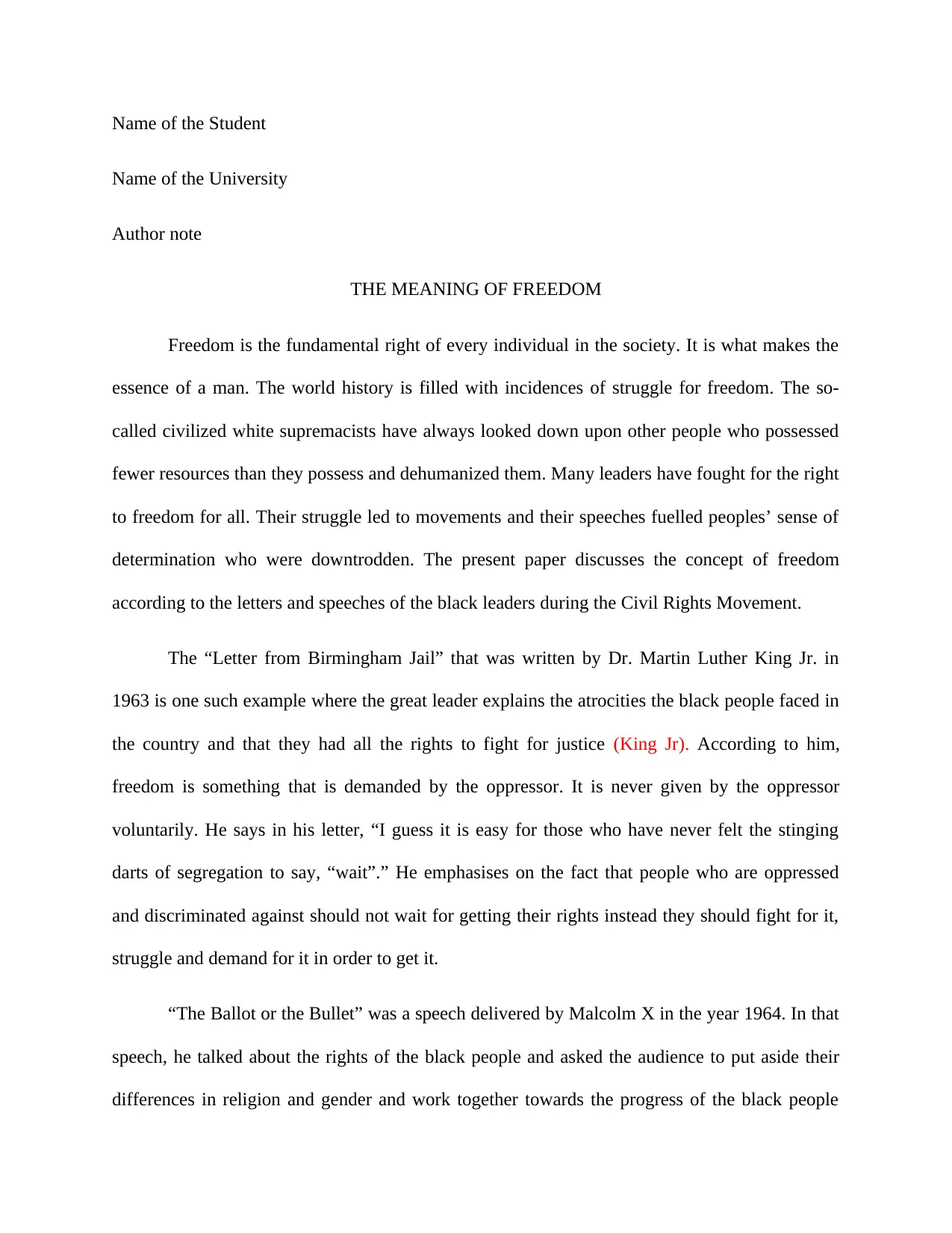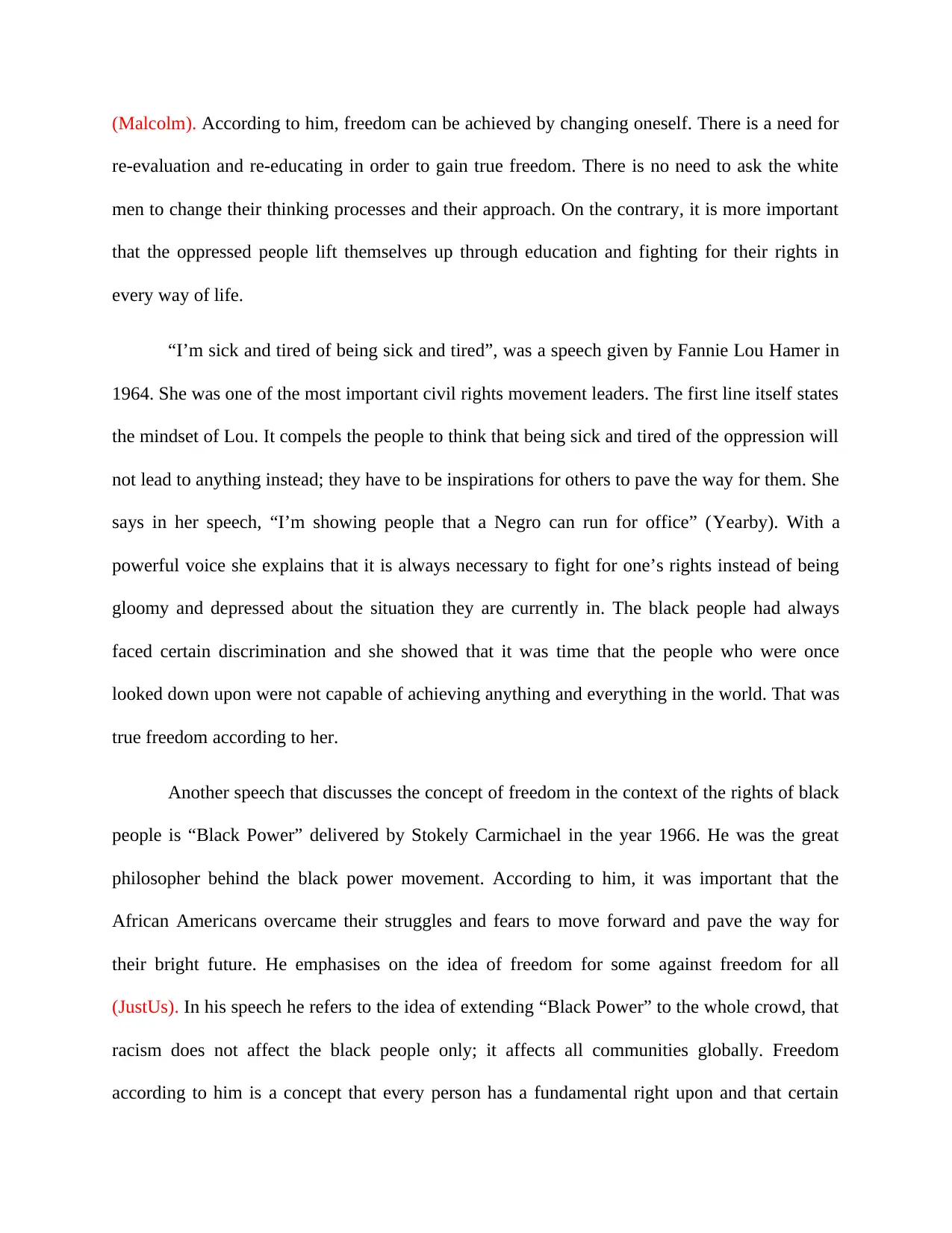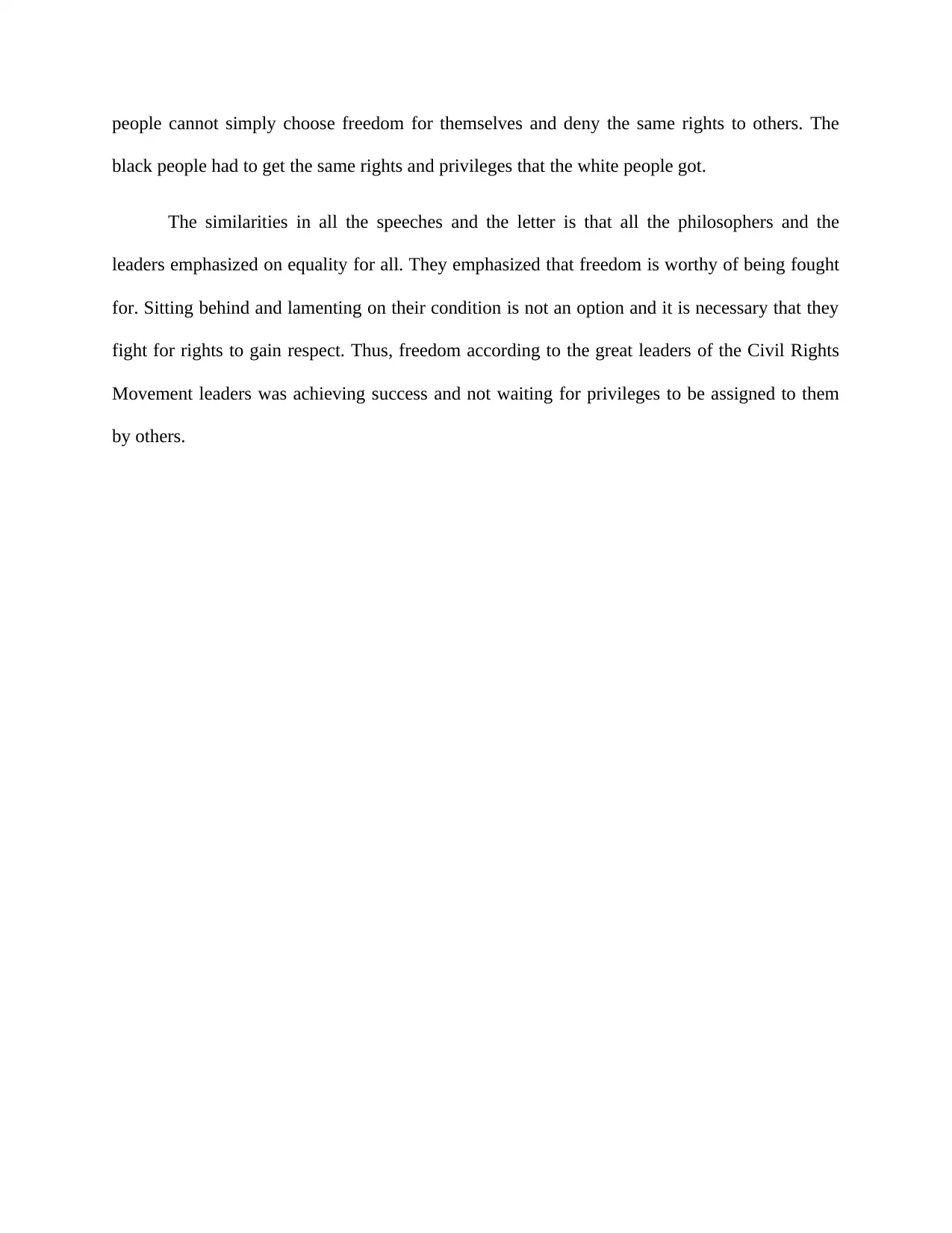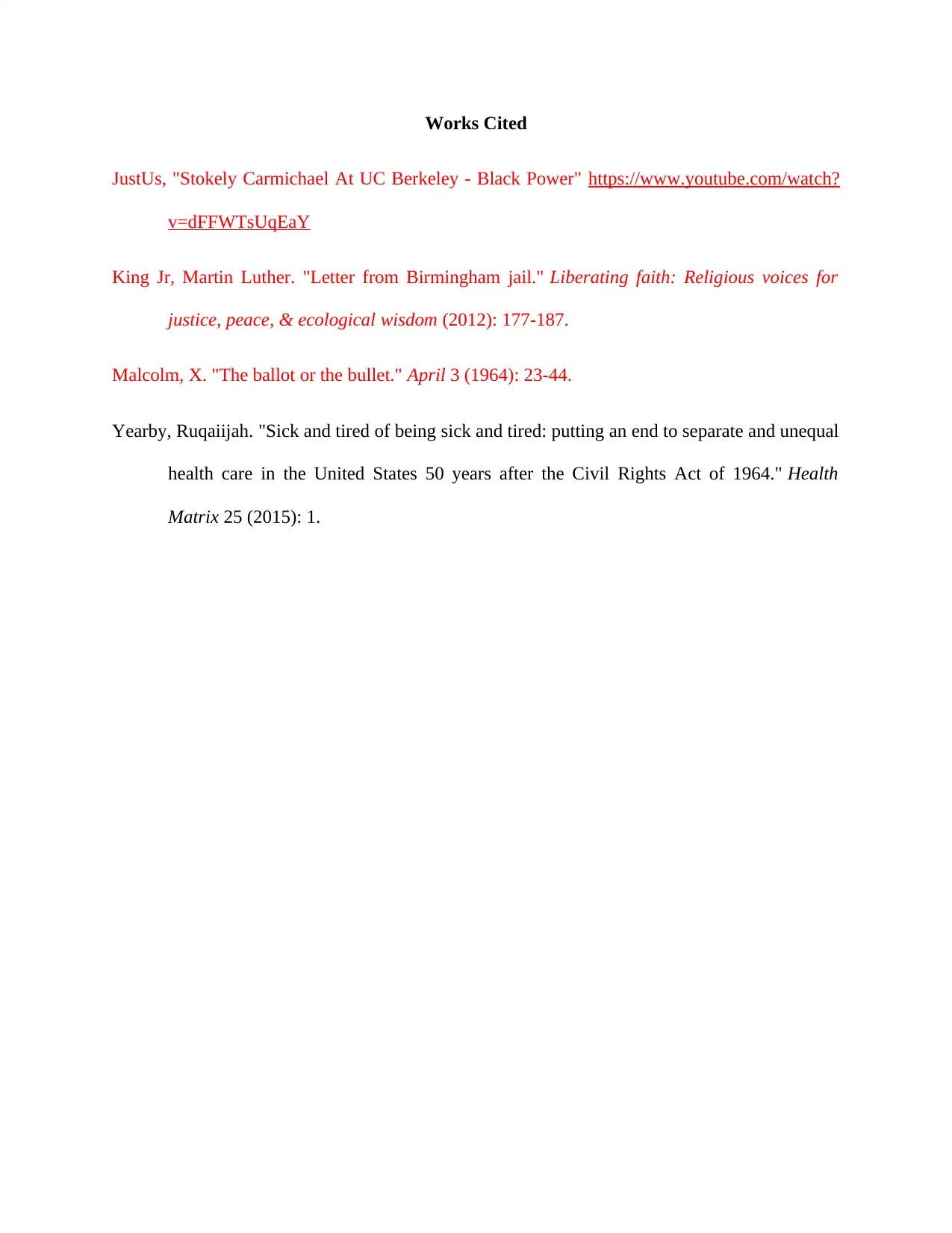The Meaning of Freedom: Civil Rights Movement Leaders' Perspectives
VerifiedAdded on 2022/08/18
|4
|962
|10
Essay
AI Summary
This essay delves into the concept of freedom as articulated by key leaders of the Civil Rights Movement. It analyzes the perspectives of Dr. Martin Luther King Jr., Malcolm X, Fannie Lou Hamer, and Stokely Carmichael, examining their speeches and writings, including the "Letter from Birmingham Jail" and "The Ballot or the Bullet." The essay highlights the leaders' emphasis on the necessity of fighting for rights, demanding equality, and achieving freedom through self-improvement and collective action, rather than waiting for privileges to be granted. It underscores the leaders' shared belief in the importance of challenging oppression and striving for justice and respect. The essay also discusses the leaders' views on how the oppressed should not wait for their rights, but should instead fight for them in order to gain them. The similarities in all the speeches and the letter is that all the philosophers and the leaders emphasized on equality for all and that freedom is worthy of being fought for.
1 out of 4











![[object Object]](/_next/static/media/star-bottom.7253800d.svg)